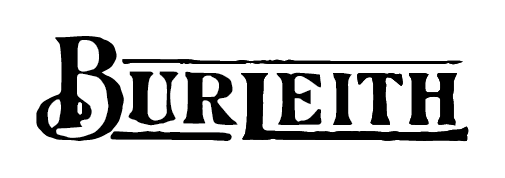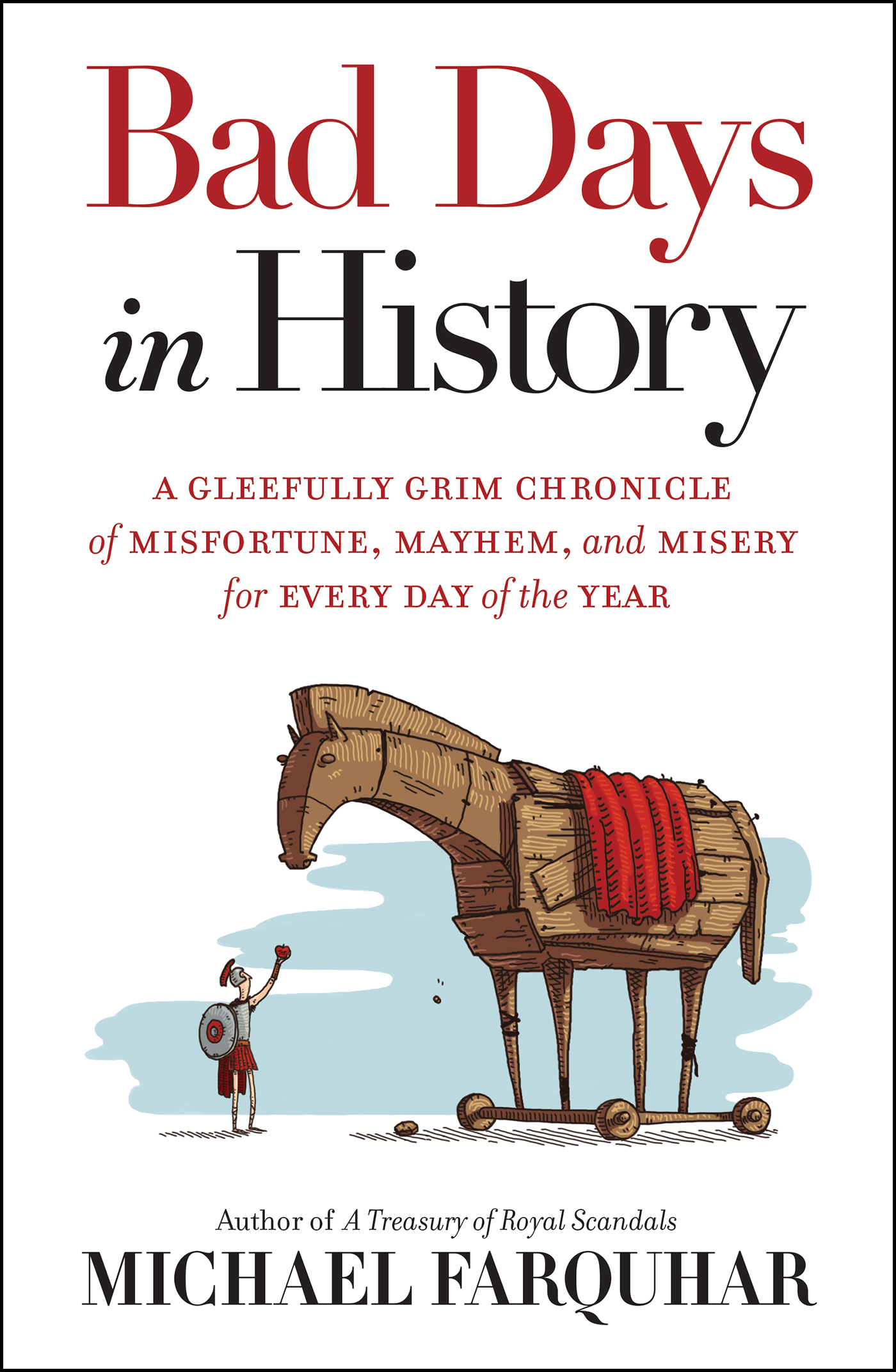Focus on Michael Farquhar
/By Forrest Bachner
Best-selling author Michael Farquhar is a man with a message: first, there is no reason that history can’t be fun; and second, even when it’s fun, history informs everything. With titles like A Treasury of Great American Scandals: Tantalizing True Tales of Historic Misbehavior by the Founding Fathers and Others Who Let Freedom Swing, college courses featuring his work, and sales of his seven books passing the 600,000 mark, it’s obvious he’s getting that message out.
A former writer and editor for The Washington Post, Catholic University grad, and Burleith native and current resident, Michael writes collections of some of history’s most interesting moments and characters, books such as A Treasury of Foolishly Forgotten Americans: Pirates, Skinflints, Patriots, and Other Colorful Characters Stuck in the Footnotes of History and A Treasury of Royal Scandals: The Shocking True Stories of History’s Wickedest, Weirdest, Most Wanton Kings, Queens, Tsars, Popes and Emperors. (See Amazon for a complete list and description of his books.)
Recently, we sat on Michael’s front porch overlooking his exquisite front yard and talked about why history is so important to him, how he got started at The Post, his career as a writer, and some of his favorite moments and people from his books—for example, the moment, almost literally, when NBC cut away from the 1968 Super Bowl to a made-for-TV movie of Heidi 65 seconds before the end of the game and before the Raiders scored two touchdowns in nine seconds to beat the Jets. Or when the owner of the White Star Line was savagely attacked after surviving the sinking of the Titanic. Why? Because he survived the sinking of the Titanic. Both of these memorable moments are from Farquhar’s Bad Days in History. (Read more about this book in the June 2015 Burleith website post. Excerpts of the Q&A below were published in the June 2016 Burleith Bell.)
All of your work is about history. Why? History is human nature writ large. People being people, just on a grander scale than most of us, good and bad, massively heroic or uncompromisingly stupid, and how entertaining that is!
How do you see your approach to history? I see myself not as a historian but as a reporter of history ... history for people who don’t know history. The history behind history that no one taught you in high school. I try to create mini-portraits synthesizing human nature and history, or find anecdotes that can illuminate a time, a place, or the real person without people having to read pages and pages. For example, biographies revere Gandhi. But do people know he was a (not a very good) father? Or how about the SS officer caught in a tutu? As [the historian] David McCullough said, “There’s nothing wrong with writing history that people want to read.” And sometimes, I just want to entertain. For example, for one Mother’s Day I wrote an article about the Meanest Mothers in History. I love to laugh and I love funny people.
"Mr. Farquhar's latest ... may offer consolation to the great mass of quotidian belly-achers ... whose piddling misfortunes and regrets will snap neatly into perspective when set against the record of idiocy and disaster he has assembled." — The Wall Street Journal
Were you always interested in history? My grandmother was English. She started me off with stories of beheadings and all of Henry VIII’s wives. Later I moved to great historical fiction like Exodus and Mila 18 by Leon Uris and Pillars of the Earth by Ken Follett. I was also fascinated by books like the People’s Almanac and The Book of Lists. I often wonder why high school reading lists have Anna Karenina instead of adventure stories.
Any issues in history that particularly attract you? While working on the Tsarist research, I was fascinated by the notion of unlimited power set against greed, courage, and envy.
Can you give examples of your favorite deceptions? Or a favorite forgotten American? As far as a deception, Gaston Means, a former Bureau of Investigation officer, murder suspect, and grifter, persuaded Evalyn Walsh McLean [American mining heiress and owner of the Hope Diamond] that he was in touch with the kidnappers of the Lindbergh baby and could get the child back if she could get the $100,000 ransom together. She did, and Means disappeared with the money. As far as a forgotten American, how about the Other Midnight Rider, William Dawes, who also rode out from Boston sounding the alarm that the British were advancing on Concord and Lexington. (Interviewer’s note: To add insult to injury, according to History.com, Dawes took a longer, more dangerous route than Paul Revere.)
Do you think our current polarized times will stand out 100 years from now as a particularly momentous era in history? No. U.S. history is rife with unsettled political times and vicious attacks. Abraham Lincoln was called a baboon. We assume our time is unique but there’s a precedent for everything.
People you particularly admire in history? People who persevered while being laughed at and mocked. For example, Alexander Graham Bell was utterly discouraged in his research. The New York Times excoriated William Goddard for thinking man could reach the moon. There are countless examples.
You started at The Post a couple of years out of college with no journalism degree. How did you do that? And how did you get into your history niche? I started out as a peon in 1990, an entry-level job taking care of the mail, replenishing toner, that sort of thing. But I had great fortune in two ways: first, I was working in the Style Department where you didn’t have to have a hard news background; and second, it was around the time of Queen Elizabeth coming to the US to visit, and Charles and Di were breaking up, Fergie and Andrew, etc. So I wrote a rough article titled “Lifestyles of the Rich and Unbelievably Naughty; When it Comes to Misbehaving, the Windsors Can’t Hold a Scandal to Their Forebears” and gave it to Mary Hadar, the editor of the Style section, who liked it. She sent it on to Gene Weingarten who loved the humor, and it ended up on the front page of the Sunday Style Section. Then because Gene Weingarten loved the idea of inserting history into current events, a niche was born.
You quit The Post to write your own books. How did that happen? I was approached by an agent who had read my stuff in The Post and liked it. She asked me if I thought I had a book in me, so I took a leave of absence and wrote my first book. By the way, agents like writers who are known to publishers. She is still my agent today.
How did you learn to write? Are there teachers or editors who were particularly important to you? I learned to write by writing. Gene Weingarten was vitally important as a teacher, and both he and Mary Hadar were very generous boosters.
Are there parts of the writing process you particularly like? Don’t like? I like the whole process, from a proposal to a book coming off the press. It is a challenge, however, in these short accounts of people and events to give enough context in two pages. But while it’s nerve-wracking putting yourself out there, it’s also good to take risks and accept criticism. I do hate doing readings. Every writer will talk about the room with two people. It’s humbling. Mortifying.
Any advice for aspiring writers? If you believe you’re a writer, then follow that. Be open to criticism but not so open that you stop believing in yourself. And while I believe writing is an innate skill, it can be refined and developed. So my advice? Write. Regarding careers, take a job in any area you’re interested in. Any job. So many people write for a small newspaper hoping maybe one day to work for The New York Times or The Post. I had no concept of a path to being a writer for The Post. I just got there by doing.
What are you working on now? The tentative title is In the Company of Kings: A Journey through Royal Britain.
Let’s return to Burleith, as this is the Burleith Bell. Do you know any great deceptions or scandals from Burleith? Besides Aldrich Ames, I only know the scandals from my family. One great, great uncle who was a DC cop shot his estranged wife and the owners of the boarding house where she was staying. The story made the entire front page of The Post in 1918 but I knew nothing about it until I found it while researching a book. When I asked my father about the murders he said, “I think I heard something along those lines.” Another uncle, also a DC policeman, was bitten by a dog in Georgetown and died. But it was not the wounds from the dog bite that killed him, it was the rabies vaccine.
You lived in Burleith until you were eight and then moved back to Burleith in 1993. What do you remember about growing up here? I loved the farm that was in Hillandale, but really I was the typical kid in the alley. The woods were my playground.


